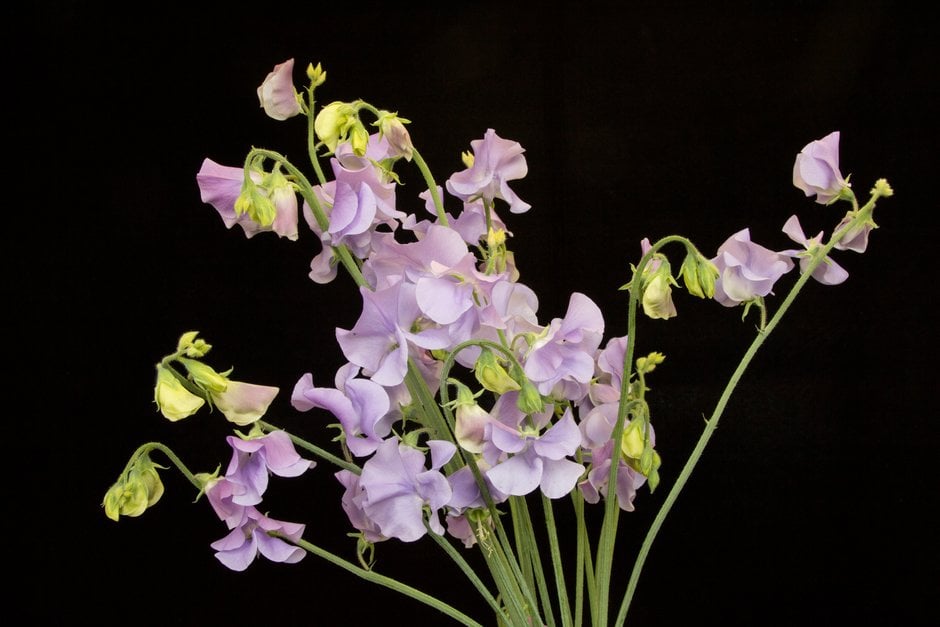Size
Ultimate height
1.5–2.5 metresTime to ultimate height
1–2 yearsUltimate spread
0.1–0.5 metresGrowing conditions
Moisture
Moist but well–drained, Well–drainedpH
Acid, Alkaline, NeutralColour & scent
| Stem | Flower | Foliage | Fruit | |
| Spring | Green | |||
|---|---|---|---|---|
| Summer | Purple | Green | ||
| Autumn | Green | |||
| Winter |
Position
- Full sun
- Partial shade
Aspect
South–facing or West–facing
Exposure
Sheltered Hardiness
H2Botanical details
- Family
- Fabaceae
- Native to GB / Ireland
- No
- Foliage
- Deciduous
- Habit
- Climbing
- Potentially harmful
- Pods and seeds are not edible. Wear gloves and other protective equipment when handling. Pets: Pods and seeds are not edible. For further information and contact numbers regarding pets, see the HTA guide to potentially harmful plants
- Genus
Lathyrus can be annuals or herbaceous or evergreen perennials, mostly climbing, with pinnate leaves ending in a tendril, and showy pea-like flowers, fragrant in some species
- Name status
Accepted
How to grow
Cultivation
Grow in a fertile, humus-rich, well-drained soil in full sun or partial shade. Incorporate organic matter into the soil before planting and feed with a balanced, liquid fertiliser once a month when in growth. Deadhead regularly to prolong flowering. See sweetpea cultivation for further information
Propagation
Propagate by seed sown in-situ in mid-spring. Germination may be improved by pre-soaking or chipping before sowing. See sowing seeds indoors for further advice
Suggested planting locations and garden types
- City and courtyard gardens
- Cottage and informal garden
- Patio and container plants
- Cut flowers
- Flower borders and beds
Pruning
Remove after flowering
Pests
Diseases
May be susceptible to powdery mildews, Fusarium wilt and sweet pea viruses
Get involved
The RHS is the UK’s gardening charity, helping people and plants to grow - nurturing a healthier, happier world, one person and one plant at a time.
